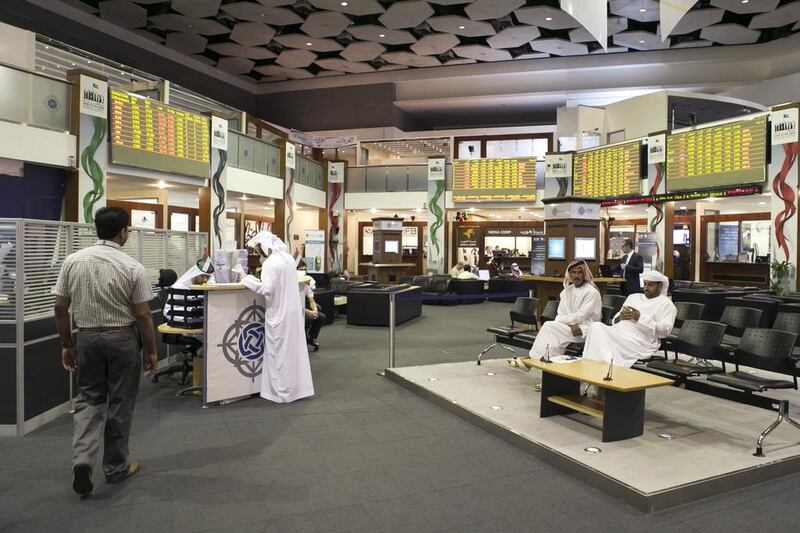Sustained investor appetite is expected in 2018 for corporate and sovereign bonds from the Arabian Gulf region, which achieved an all-time high issuance level of $70 billion last year, a new report said. Non-GCC investors subscribed to nearly three-quarters of primary market deals despite regional political instability.
Sovereigns accounted for 70 per cent of the GCC's total bond and sukuk issuance last year, as governments looked to bridge their fiscal deficits and keep fuelling their economies, according to a joint white paper released on Monday by Emirates NBD Asset Management and Zurich-based Fisch Asset Management.
The paper titled The GCC Fixed Income Market: Then and Now, identifies key themes that have influenced issuances in 2017, and looks ahead at key trends for markets this year, such as investor concerns that higher oil prices may blunt regional governments' commitment to economic reform.
“While the regional debt market has historically been considered self-sufficient, deals in 2017 showed a clear trend towards a diversification of the investor base, indicative of a developing GCC bond market with a sophisticated variety of structures and maturities,” said Philipp Good, CEO of Fisch Asset Management.
“Key takeaways ….. include the market’s ability to absorb a significant uptick in bond issuance without a real price disruption, which speaks strongly for the GCC’s appeal to global emerging market investors, particularly in Asia and the US.”
_______________
Read More:
[ DIB seeks shareholder approval for up to $5bn sukuk issuance ]
[ The case for greater sukuk standardisation ]
_______________
Governments in the Arabian Gulf region, home to about a third of proven oil reserves globally, were forced to cut spending in the wake of crude prices falling from the mid-2014 peak of $115 a barrel to below $30 in 2016. Prices have recovered since to around $70 per barrel, but governments thus far have opted to draw down on foreign reserves, and borrowed from domestic and international capital markets to help balance their budgets.
The bulk of GCC issuances in 2017, especially sovereign deals, were comfortably met by non-GCC investors, who absorbed more than 75 per cent of the amount issued in the primary market. The need for fixed income portfolio diversification by global investors and a rise in jumbo sovereign issues were two of the key drivers of the global demand for GCC credit, according to the white paper.
“Emerging market fixed income ended 2017 on a strong note and the positive sentiment has carried over into 2018," said Usman Ahmed, the head of investments at Emirates NBD Asset Management. "We expect growth of the GCC’s debt investor base to continue in 2018, with demand coming from the record inflows to emerging markets and supply provided by the very real diversification needs of the region.”
“The GCC remains a solid value proposition for debt investors, with credit spreads attractive given current and projected credit fundamentals.”
Of the 10 emerging market “jumbo” debt issuances - $5bn and more in size – four were printed by sovereigns in the region with two deals from Saudi Arabia and one each from Abu Dhabi and Kuwait. Oman has already kicked off 2018 with $6.5bn bond, which was more than 90 per cent placed to investors outside the GCC, Mr Ahmed added.
Dana Gas’ ongoing litigation with its $700m sukuk holders hasn’t affected the appetite for sharia-compliant debt from the region, Emirates NBD Asset Management’s senior executive officer Salman Bajwa said. It has given the sukuk market a black eye, but there was no “contagion effect” due to the controversy and “demand remains strong” for GCC corporate debt.
Mr Bajwa, who helps oversee $4.8bn of assets under management, said the equities, especially, the Saudi Arabian stocks offer a good opportunity as the kingdom awaits a possible upgrade to emerging market status in March by FTSE Russel and by MSCI in June. The company has converted its Mena Equity Fund to a Saudi equities specific fund.
“This is what we are talking to people about and we are getting a good response from them,” Mr Bajwa said. “There is a big catch up trade opportunity in Saudi Arabia.”






